Performance Dieting Tips For Muay Thai
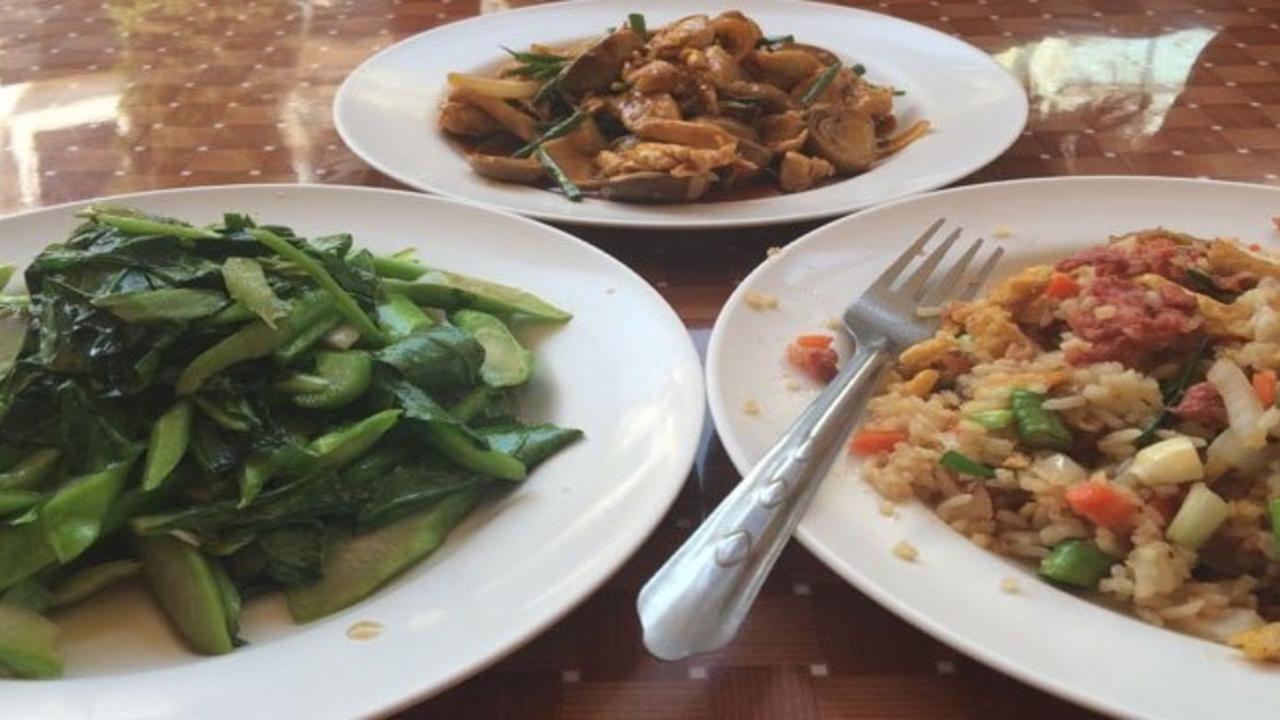
Muay Thai Diet Tips To Improve Your Training Output
By James Bee

I saw a need to optimize the Muay Thai diet because there are a lot of people training and fighting at an elite level who don’t know how to eat to improve performance and recovery, or how to eat to cut weight properly. For some reason proper nutrition strategies get over looked in Muay Thai and I’m here to put an end to it!
My philosophy for a fighter’s diet is simple: Plenty of fresh, whole foods. Clean air and clean water, combined with hard training and genuine rest.
In this post I want to show you some things you can do to change from an average diet, to a performance diet for athletes. These may seem like simple tips, but you’ll have to trust me – they give the biggest return for your efforts. These steps help fighters make improvements to their performance and recovery every time. If you’re training or competing, these 4 Muay Thai diet tips will do the same for you.
Muay Thai Diet Tips
Reduce inflammatory f...
Muay Thai Tournament Tips: Nutrition and Diet Strategies
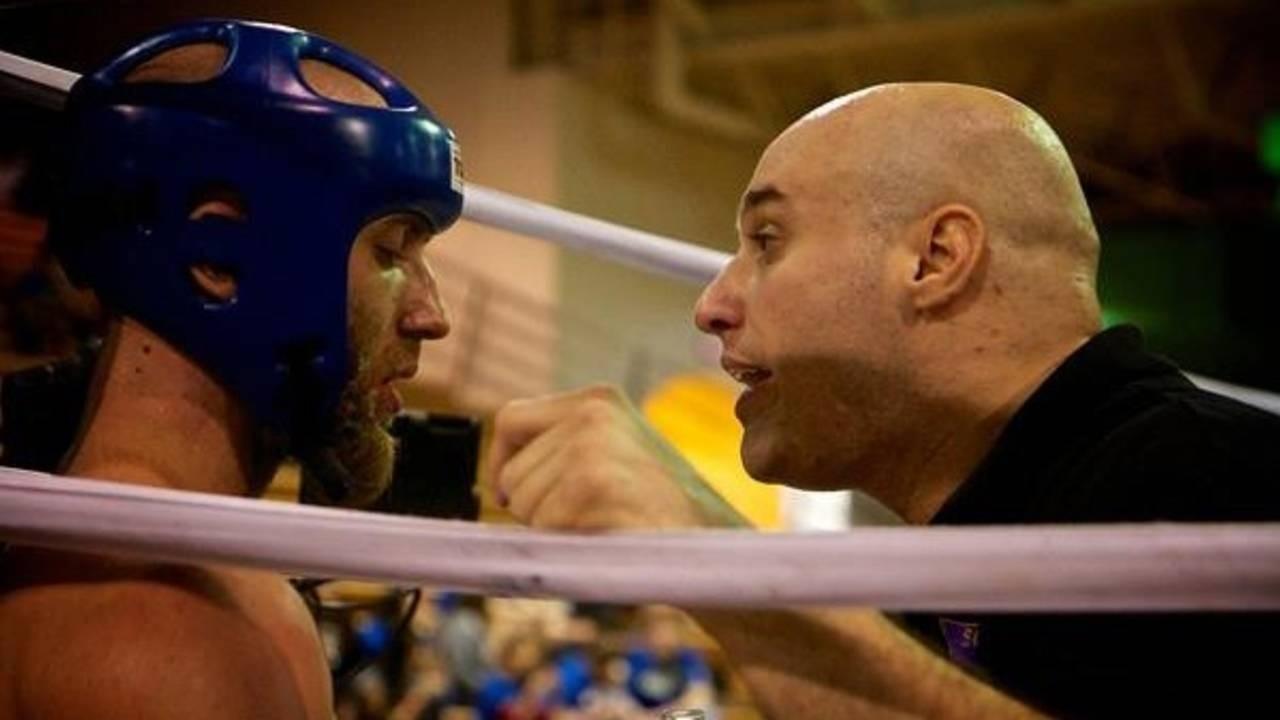
How To Prepare For The IFMA World Championships and Other Muay Thai Tournaments
By James Bee

With the IFMA world championship games only weeks away, I hope everyone attending has been eating and training well. No doubt most of you have to meet at a weight class.
In this post I’m going to list the foods you should be eating and how to calculate your calories to get your weight spot on by the time you’re in Langkawi. With this goal in mind, you know you’re going to have to cut and monitor daily calorie intake. The strategy – consume all the nutrition you can get in as few calories as possible.
If you don’t need to lose any weight and just want to maintain your current weight, your formula for daily calorie intake is this:
To maintain current weight: Body weight in lbs x 13 Cal
Don’t worry about getting it perfect, you can likely get away with 10% either way. However j...
The “Street Fighter” Complex
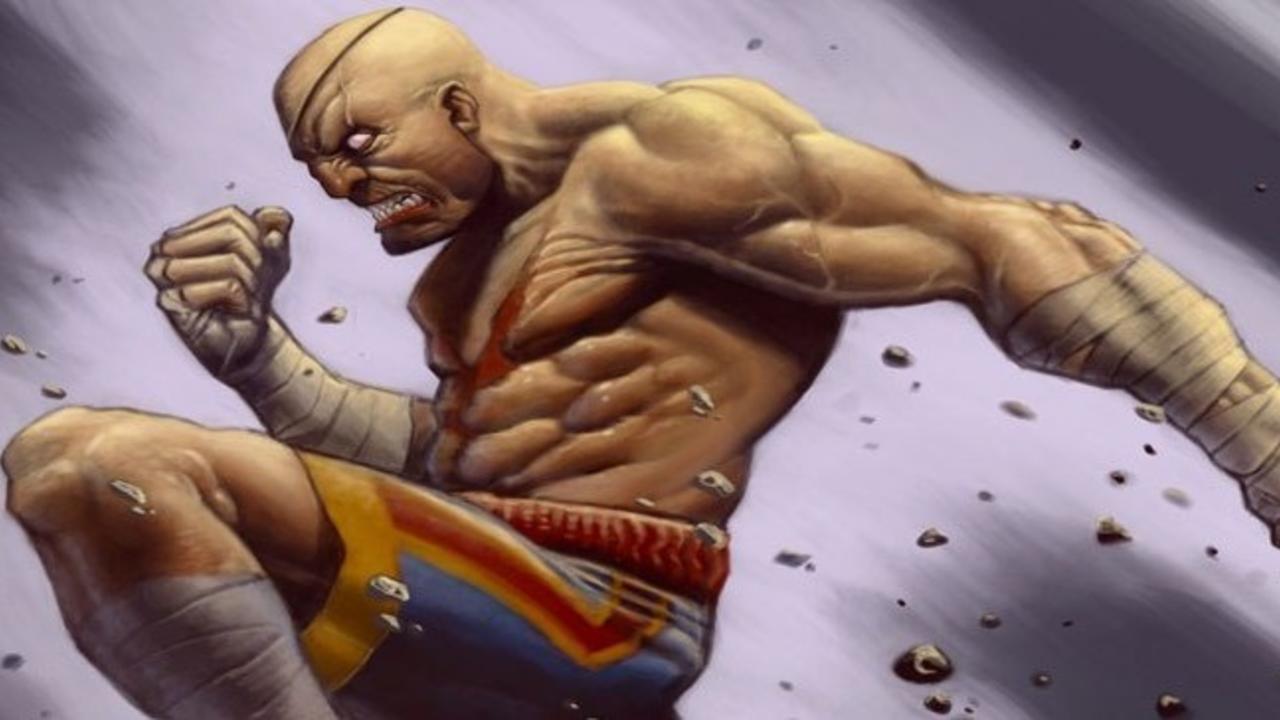
The Two Main Philosophies To Dealing With Challenges At Your Gym
From Muay Thai Guy
We all have either heard or seen it happen before.
A guy walks into the gym, says he’s a street fighter, and wants to challenge someone to a fight to prove how badass he is. The next thing you know, he finds himself crying in the corner of the ring in a fetal position due to the brutal body shots or massive head kicks (like in this video) he was bound to get hit with.
Although it’s the most common outcome we hear when a “street fighter” challenges someone at the gym, there have been other endings that will make you think twice before accepting a challenge from an outside fighter.
For example, I had a first hand experience where I saw a self proclaimed “street fighter” knock someone out cold with a telegraphed head kick… and that sh!@ came out of nowhere.

The guy walked in (probably around 160-170lbs) and wanted to challenge the pro MMA fighters (both over 200lbs). Needless to say, the pro’s had ...
6 Muay Thai Low Kick Setup Techniques
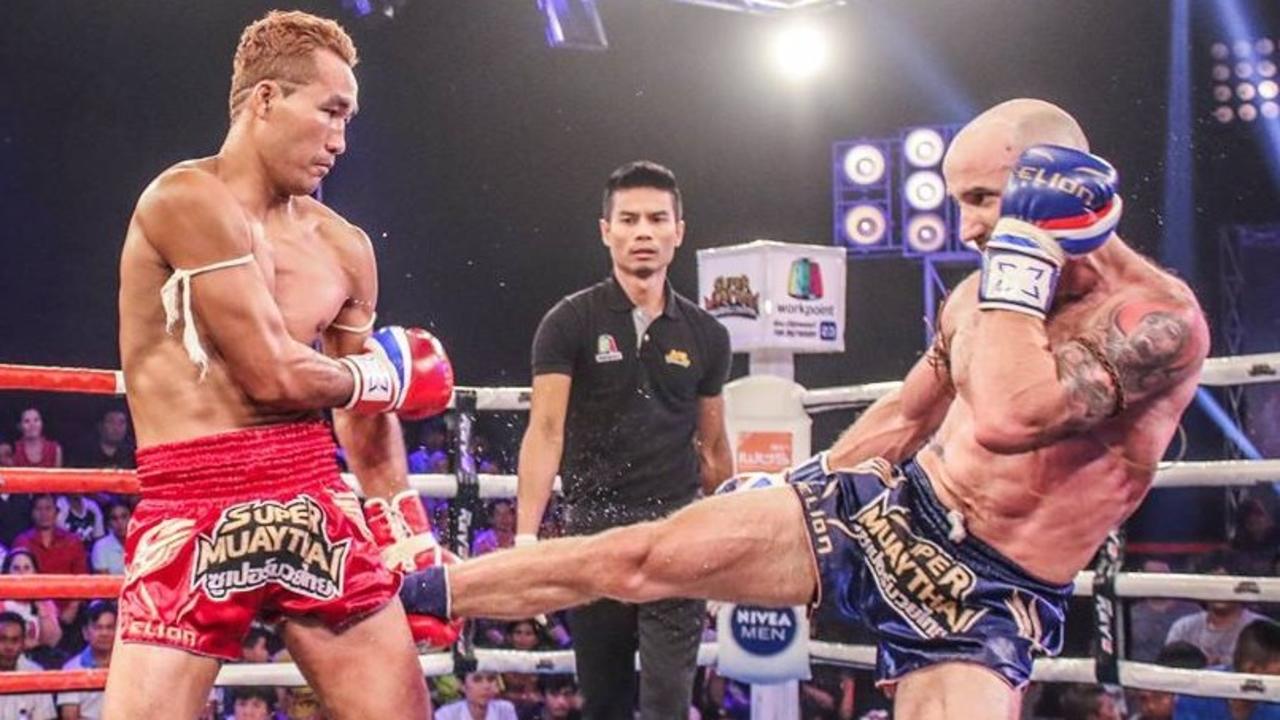
Advanced Muay Thai Techniques: How To Set Up The Low Kick
From Muay Thai Guy

The Muay Thai low kick is a crucial technique that helps limit your opponents movement and deliver some serious damage, which could eventually lead to a fight stoppage.
As you progress as a nak muay, you need to learn how to set up certain low kick techniques so you are able to land them without the risk of getting them checked or blocked.
Take a look at these 6 Muay Thai low kick techniques and try adding some of them to your bag of tricks.
6 Muay Thai Low Kick Setup Techniques
Here are the 6 muay thai techniques you’ll find in the tutorial video:
- Fake and Drag – Fake a low kick by turning your hip slightly and dragging your back foot. This will ideally draw your opponent’s leg up to try to check your attack. Once they plant their foot back down, that’s when you throw the low kick.
- Stiff Arm – Use a stiff arm or a long guard to drive your opponent back. As your opponent steps back, time your lo ...
Beginner Tips For Choosing Your 1st Muay Thai Gloves

CONSIDER THIS ABOUT YOUR NEXT PAIR OF MUAY THAI GLOVES
From Muay Thai Guy

The first thing you need to understand is that boxing gloves and Muay Thai gloves are different. Really different.
Most of the time, people refer to all gloves that have the fingers covered in a mitten style construction as “boxing gloves.” This is generally accepted because they appear identical and it’s just easier to say.
In reality, there are key subtle differences between the types of gloves that may make the difference in your training. Those differences are the things to consider when buying your first Muay Thai gloves.
Here’s some advice for the novice nak muay looking to pick up his or her first pair of gloves for the gym.
Be able to tell the differences between Muay Thai gloves and boxing gloves.
To do that, you can consider the demands of each of the sports. In boxing, the fights are far longer and the only weapons available are fists. That’s up to 12 rounds of primary impact on your knuck...
Iron Mindset: 3 Ways to Think (and Perform) Like a Fighter
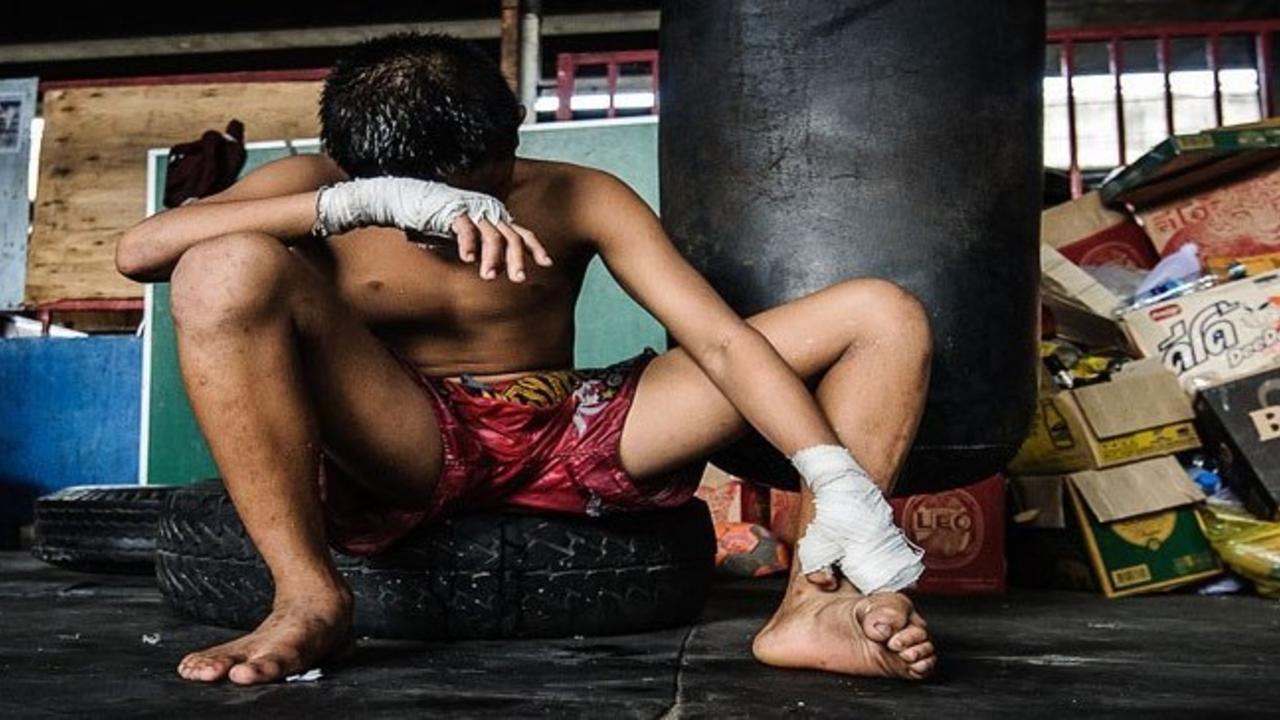
“Fighting is 90 percent mental, and the rest of it is in your head.”
From Muay Thai Guy

The psychology of fighting has spawned more Yogi Berra-style quotes than I can count, but they all seem to agree on one thing: mental toughness is key.
Throughout the history of combative sports, certain fighters have found ways to “weaponize” their minds, using mental toughness to break their opponents in the way others use speed, conditioning, or technique. This article aims to give you tools to add this kind of psychological weapon to your arsenal.
In today’s special guest post, the Warrior Punch team offers up three psychological techniques you can use to build an iron mindset.
Whether you’re a boxer, nak muay, karateka, or a white-collar worker trying to build up the courage to ask for a promotion, these mental strategies will help you manage self-doubt, maximize performance, and find strength in scary situations.
1. Draw Strength from Your Skill; Trust Your Technique

One of the best...
Why Your Core Is CRUCIAL For Muay Thai
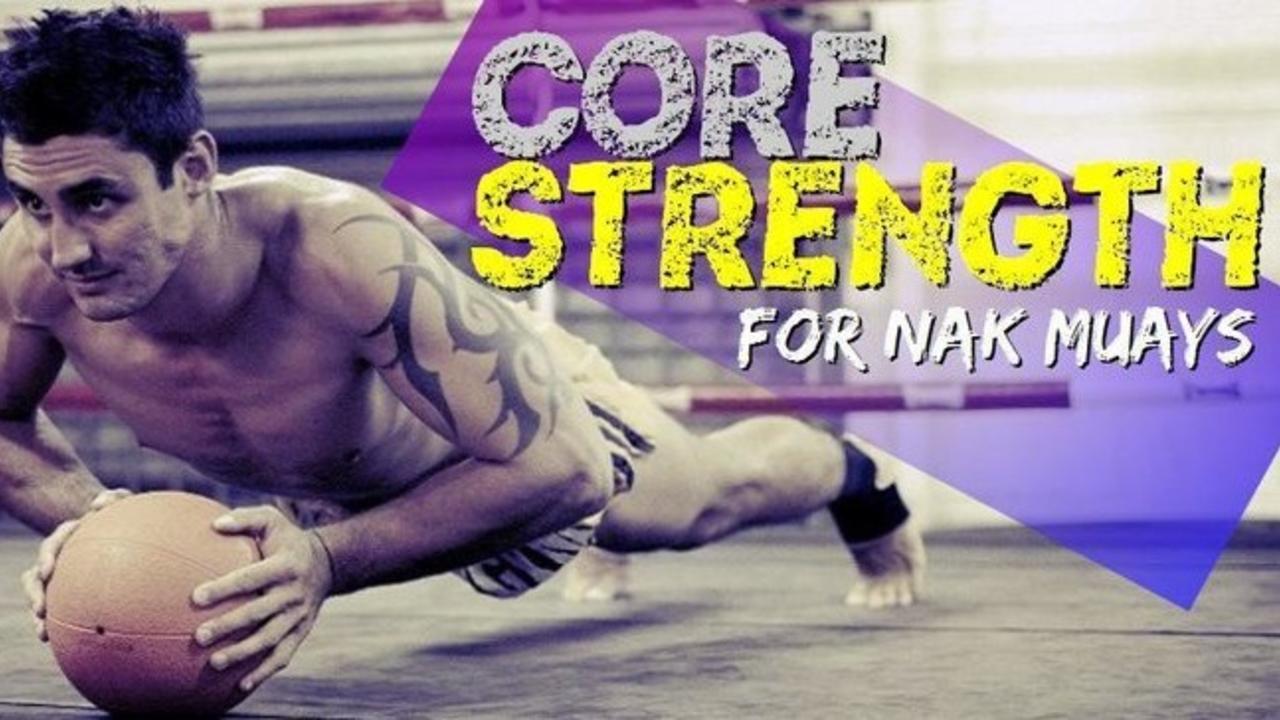
HOW A SIX-PACK MAKES YOU A BETTER NAK MUAY
From Muay Thai Guy

Some sort of exercise that includes working the abs is part of almost any exercise program, even more so if your aim is to train Muay Thai. No respectable, proper Muay Thai gym will ignore ab conditioning.
Many are misguided to think that this type of exercise will help them get a six-pack. This is great and all, but the real reason we do so many sit ups and planks is because we want to get those muscles stronger, not prettier.
That’s a no-brainer, huh? After all, what muscles don’t you want stronger for Muay Thai? Arguably, if you had to pick just one area to focus on as part of your conditioning routine, it should be your abdominal muscles.
Here are my thoughts on why strong abs lead to strong Muay Thai.
BUILDING CORE STRENGTH STABILIZES YOU
You may or may not have heard this sage advice before: if you want to improve your balance, work on your core strength.
Your core is your entire midsection – front, sides...
10 Jump Rope Tips and Tricks For Muay Thai
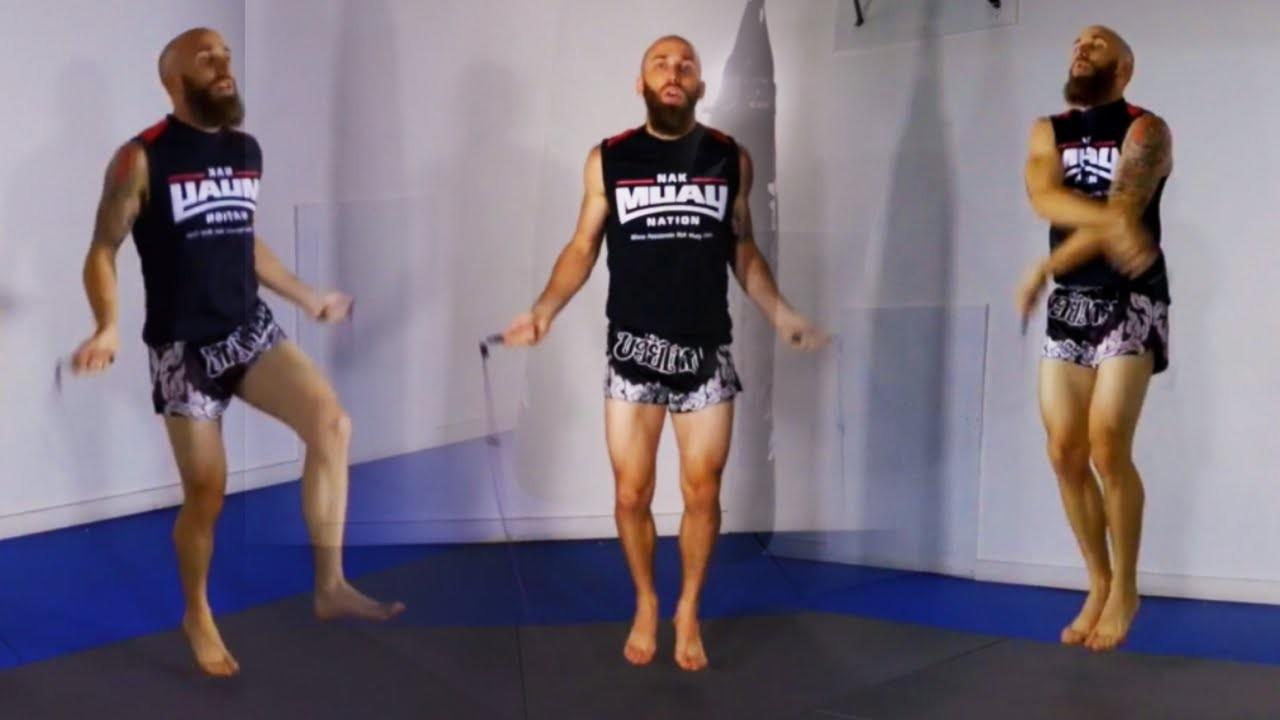
How To Jump Rope For Muay Thai
From Muay Thai Guy

Have you seen those videos of Mike Tyson jumping rope like a maniac or Floyd Mayweather skipping rope like an absolute ninja and swinging them around like nunchucks?
Most people think Floyd’s just being fancy and flashy with his jump roping like he is with his pad work, but what people don’t realize is that his skipping is part of what makes him such a great mover in the ring!
But how does this apply to Muay Thai? You’d be surprised.
If you’ve ever stepped foot into a Muay Thai gym in Thailand, you KNOW how big on skipping rope they are. It’s done so damn often. And there’s a good reason why it’s so important to them!
Skipping rope in Muay Thai is even MORE important than in boxing, because skipping rope, like road work, helps to condition your shins! It builds your calves and legs and gives you the strong base you need in order to deliver kicks and take kicks. If you want tough shins that can check kicks and break arms, you’ll ...
Muay Thai Styles: Muay Khao

Meet The Muay Thai Knee Fighter
From Muay Thai Guy

Muay Thai is not one style.
The art of Muay Thai extends to Muay Boran, and from Muay Boran, it extends out even further.
Muay Thai is as mixed as any martial art can be. However, like how boxing has the counter-puncher, brawler, boxer-puncher, etc., Muay Thai has many fighting styles of its own as well.
Today, the focus is on the masters of the clinch, the Muay Khao. Muay Khaos are the smothering fighters. They are terrors to fight and will not give you a single second to rest. You may think of them as the terminator mixed with an octopus. They never stop moving forward. They seek to smother, and when they do grab you, you’ll end up twisted and ragdolled.
In short, it’s not fun. However, the Muay Khaos do have weaknesses that may be exploited. To find these weaknesses, check out the Evolve MMA video below:
As you’ve learned in the video above, distance is a key to defeating the Muay Khao. You may use the jab to create dist...
What Are The Best Ways To Recover From Muay Thai Training?

IF YOU CAN’T RECOVER, YOU CAN’T TRAIN & IMPROVE
From Muay Thai Guy

We’ve all had those weeks when our bodies are aching for days on end after a single hard session.
When you go back to the gym, you’re not able to give 100% because you’re still sore or your joints ache.
The bad news is that there’s no way to prevent soreness or accidents from happening.
The good news that is that on your end, you can do some things to help speed up recovery between each session. Here are some tips to keep your body in tip-top recovery form:
NUTRITION: YOU ARE WHAT YOU EAT
What goes into your body will always show during your training sessions. The quality of your food matters as well as the quantity(caloric intake). If you eat a lot of processed foods or unbalanced, it won’t give you the type of sustaining energy you need. It also won’t help you recover. And if you do have a “clean diet” but aren’t eating enough calories, it’s easy to underperform as well.
There are many online calculators ...





